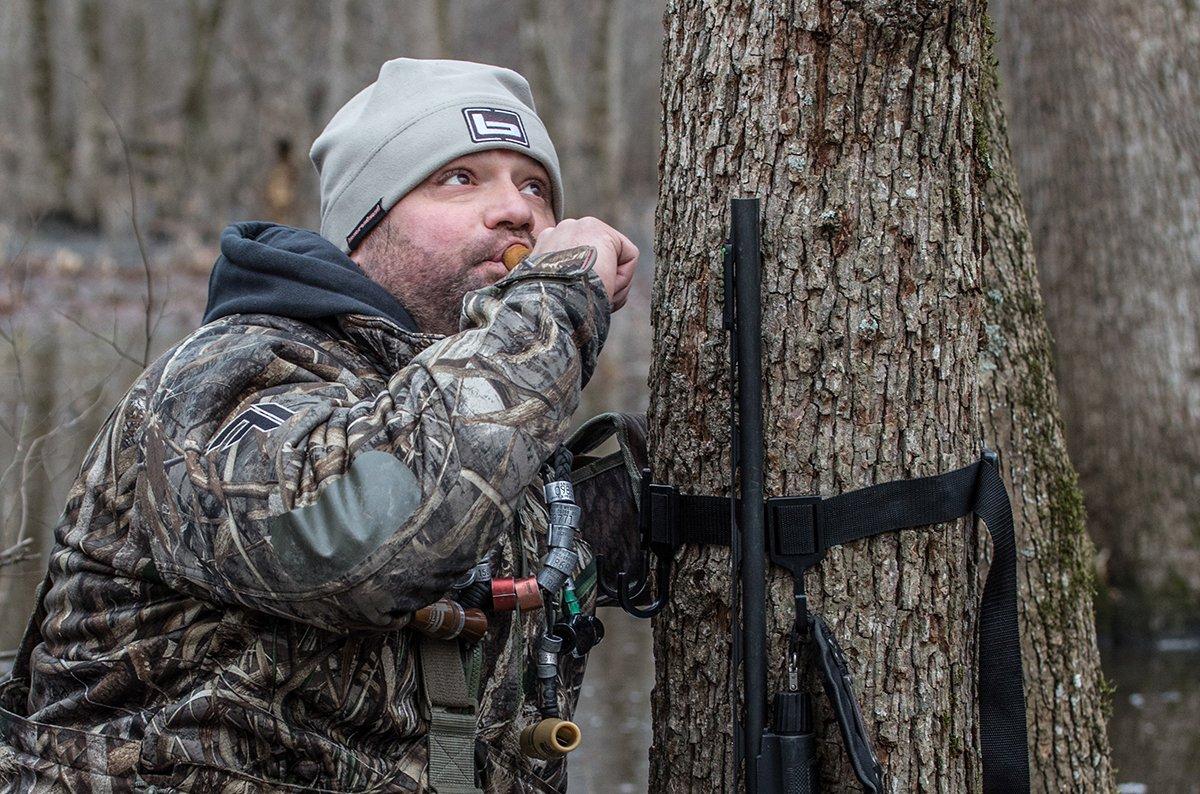Off-season work equates to sweet sounds come fall
Waterfowl hunters always want to improve their calling skills, and the long off-season provides the perfect opportunity.
But although we huff and puff in hopes of achieving excellence, it seems like our calling journey often stalls or becomes mired in frustrating plateaus. At times, we wonder what it will take to become a better caller.
Top-level callers have been there, and their advice can help. Recently, several pros offered these quick tips to step up your calling game this year.
Tony Vandemore
Vandemore, owner of Habitat Flats in Sumner, Missouri, guides hunters from Canada through the Midwest every year. He said consistent practice helps keep your air control sharp.
It's easy to keep a call in your vehicle and practice throughout the offseason, he said. It seems as though it takes a few weeks to 'get your lungs back' during the season when you don't practice throughout the offseason. I especially notice it when calling lessers up in Saskatchewan in September and October. If I haven't been practicing, I'll become short-winded and don't make crisp notes.
John Pollmann
An avid waterfowl hunter and writer from South Dakota, Pollmann said off-season practice doesn't require a huge effort — just consistency and taking advantage of brief windows of opportunity.
When I was younger, I used to keep a duck call in my lunch pail, and during breaks at my summer job, I'd practice for five to 10 minutes every day, he said. Now, I just keep a call in my truck and practice five-note greeting calls when I've got some extra windshield time. I get a few strange looks now and then, but I'm more concerned what a greenhead is going to think next fall rather than someone in the next lane.
And that effort makes a huge difference when the game is real.
I am a musician by trade, and I have learned the hard way that if I don't practice or 'keep my chops in shape,' I have a really hard time flipping the switch when I need to perform, Pollmann said. The same goes for duck calling. The muscles that you use to blow a call will respond so much better (and not fatigue so quickly) if you use them during the off-season.
John Vaca
Vaca, national pro-staff manager for Vista Outdoors, who has guided waterfowl hunters for 32 years, echoed the need for practice. But he also noted how difficult it can be to blow calls while trying to maintain domestic harmony.
The fact that calls are loud and annoy most everyone in a house (that is, who's not a caller) will hinder calling prowess as well as relationships, he said. When I was competing, my wife would threaten to throw me out of the house almost nightly due to my need to practice for the next contest. So, I would take my calls into my walk-in closet, shut the door and blow the calls directly into the hanging shirts. This allowed me to practice at full wind but muffled the loud call enough that people watching TV or trying to converse in the next room were not bothered by my hours of practicing. The end result as that I was able to keep up with my calling and still sleep in my own house — a win-win for me.
Chad Belding
The host of Banded's The Fowl Life, Belding stressed that calling practice needs to go beyond sound.
Cadence and timing, he said. Listening to live birds, for sure. But being able to begin to develop the instincts to know when to call and which cadences to be using.
And that, he said, might require some road trips.
Get out if possible, and find live birds, he said. If not, recordings can be helpful, but seeing the posturing, wing flutters and body movements is very important in learning to read birds and knowing what to say with the call and when.
Click here for more Realtree waterfowl hunting content. And check us out on Facebook.







